Tokyo Zentai Club
kilgore9012
Published
04/18/2014
Japans latest trend
- List View
- Player View
- Grid View
Advertisement
-
1.
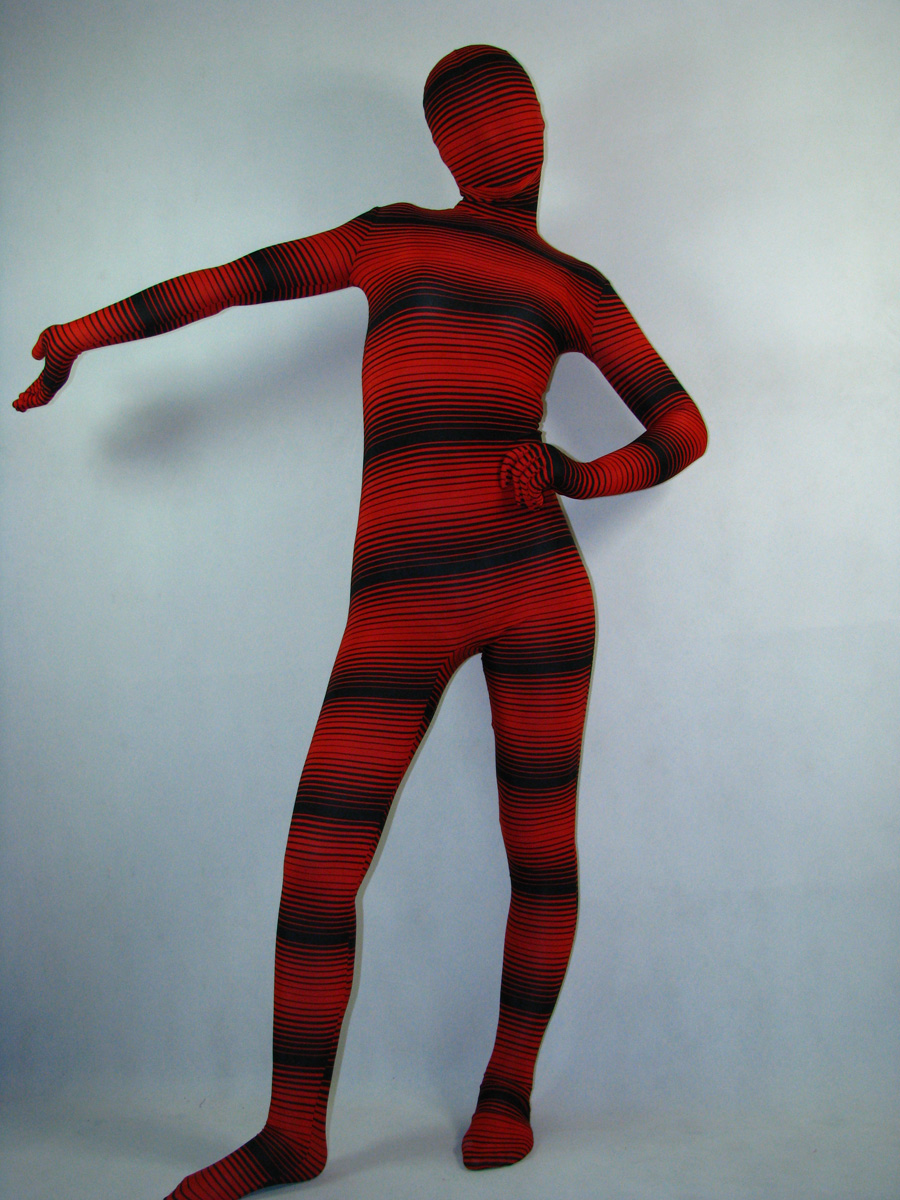 Its called zentai. And in Japan, it can mean a lot of things.
Its called zentai. And in Japan, it can mean a lot of things. -
2.
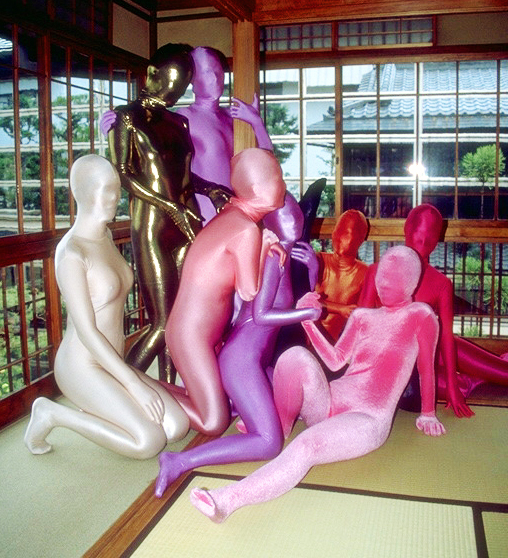 They meet on clandestine Internet forums. Or in clubs. Or sometimes at barbecue parties, where as many as 10 participants gather every month to eat meat and frolic in an outfit that falls somewhere between a Power Rangers tunic and Spider-Mans digs.
They meet on clandestine Internet forums. Or in clubs. Or sometimes at barbecue parties, where as many as 10 participants gather every month to eat meat and frolic in an outfit that falls somewhere between a Power Rangers tunic and Spider-Mans digs. -
3.
 To 20-year-old Hokkyoku Nigo, it means liberation from the judgment and opinions of others.
To 20-year-old Hokkyoku Nigo, it means liberation from the judgment and opinions of others. -
4.
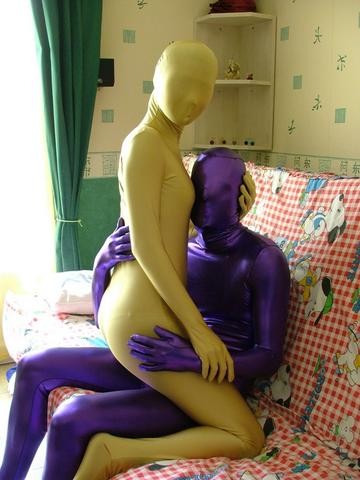 To a 36-year-old teacher named Nezumiko, it elicits something sexual. I like to touch and stroke others and to be touched and stroked like this,
To a 36-year-old teacher named Nezumiko, it elicits something sexual. I like to touch and stroke others and to be touched and stroked like this, -
5.
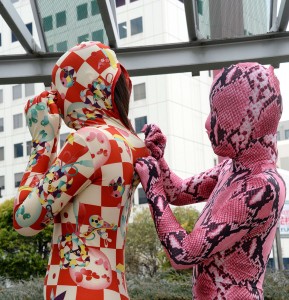 Though the trend is now apparently global, it was once just a group of Japanese climbing into skintight latex for unknown reasons.
Though the trend is now apparently global, it was once just a group of Japanese climbing into skintight latex for unknown reasons. -
6.
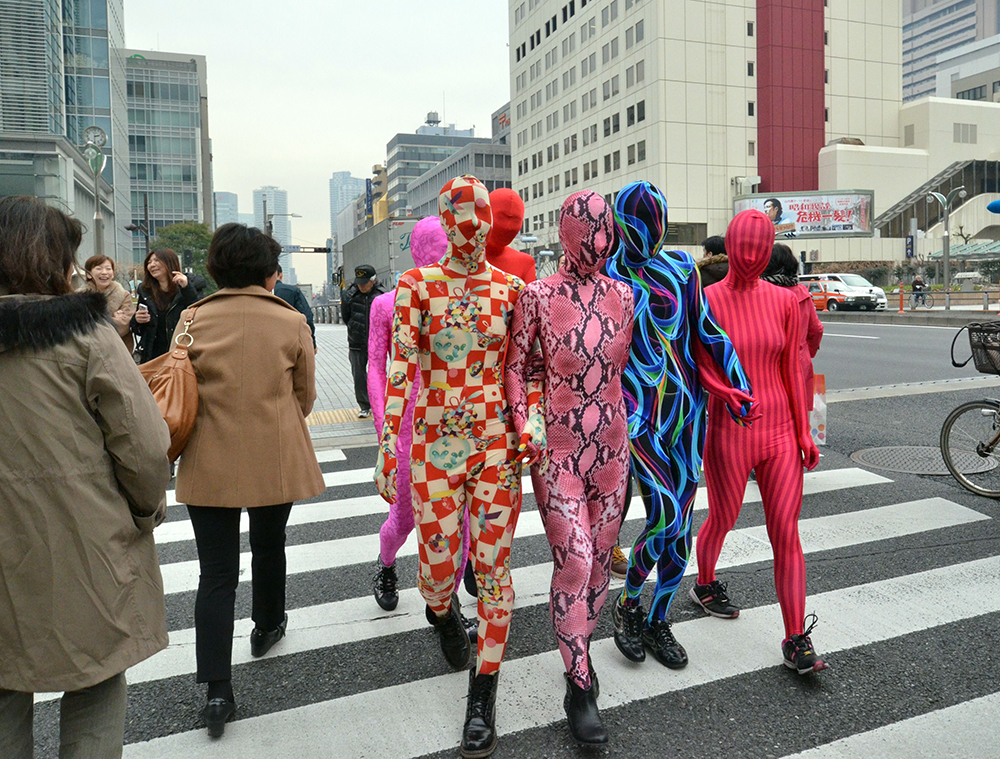 Ikuo Daibo, a professor at Tokyo Mirai University, says wearing full body suits may reflect a sense of societal abandonment. People are acting out to define their individuality.
Ikuo Daibo, a professor at Tokyo Mirai University, says wearing full body suits may reflect a sense of societal abandonment. People are acting out to define their individuality. -
7.
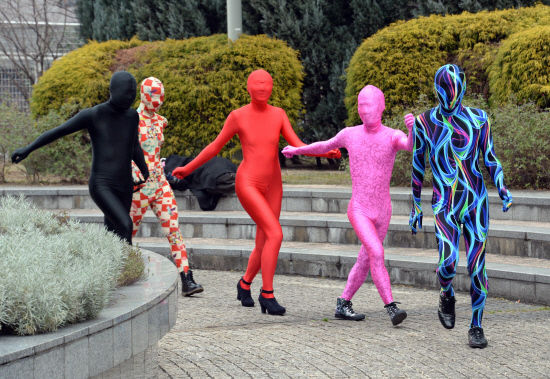 In Japan, he said, many people feel lost they feel unable to find their role in society. They have too many role models and cannot choose which one to follow.
In Japan, he said, many people feel lost they feel unable to find their role in society. They have too many role models and cannot choose which one to follow. -
8.
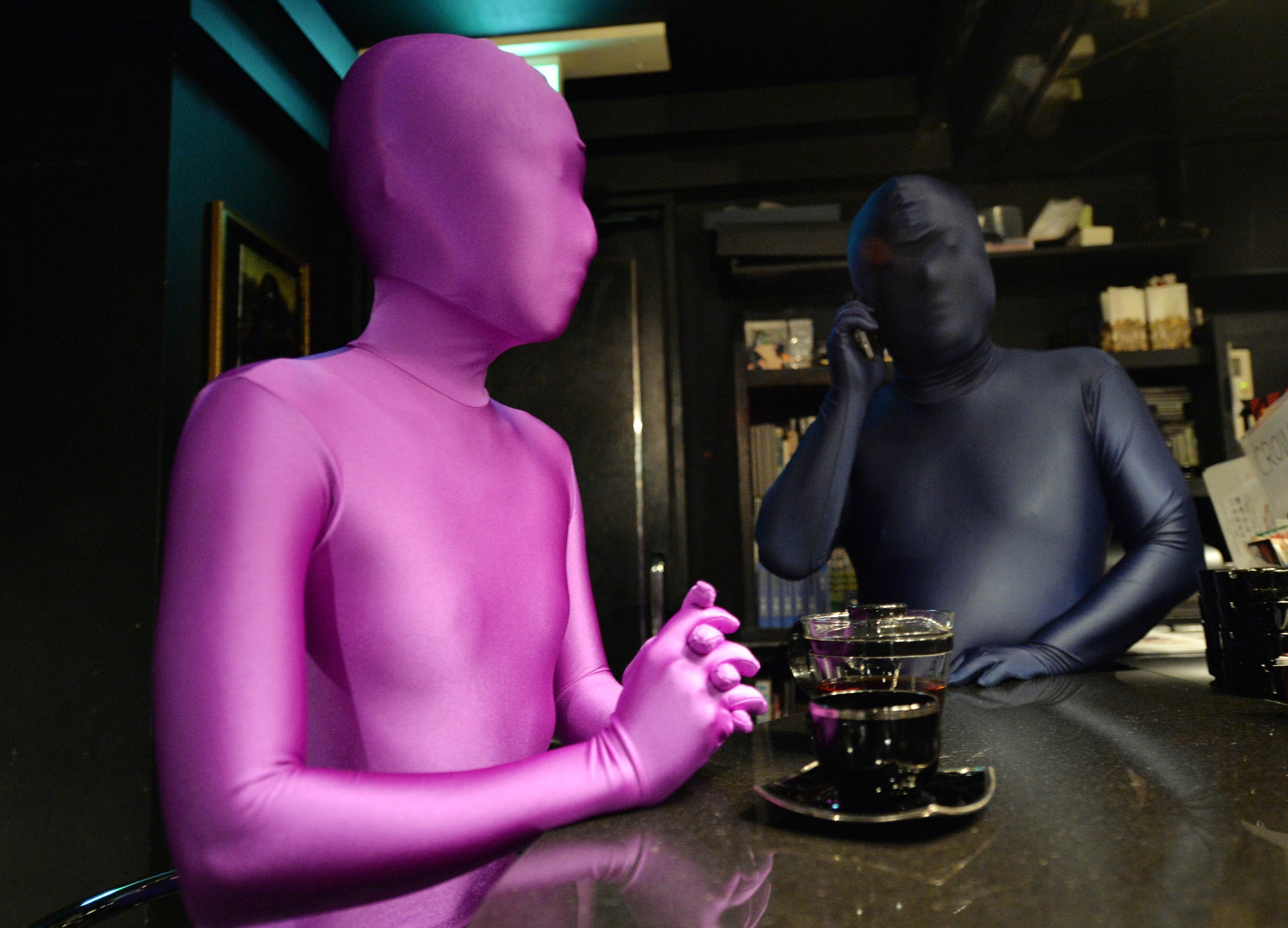 With my face covered, I cannot eat or drink like other customers, Hokkyoku Nigo says. I have led my life always worrying about what other people think of me. They say I look cute, gentle, childish or naive. I have always felt suffocated by that. But wearing this, I am just a person in a full body suit.
With my face covered, I cannot eat or drink like other customers, Hokkyoku Nigo says. I have led my life always worrying about what other people think of me. They say I look cute, gentle, childish or naive. I have always felt suffocated by that. But wearing this, I am just a person in a full body suit. -
9.
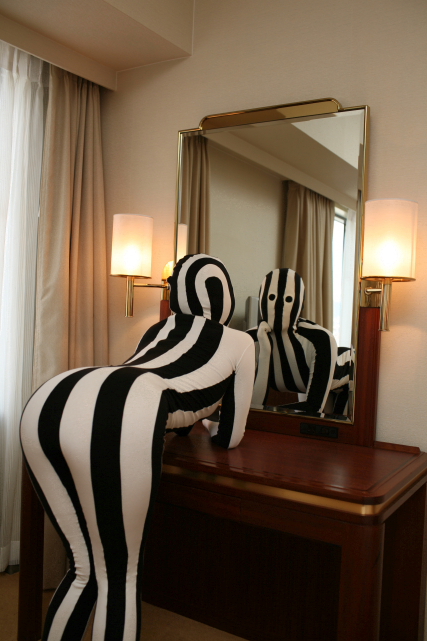 The trend can take on elements of prurience, however, and groups with names such as zentai addict and zentai fetish teem on Facebook.
The trend can take on elements of prurience, however, and groups with names such as zentai addict and zentai fetish teem on Facebook. -
10.
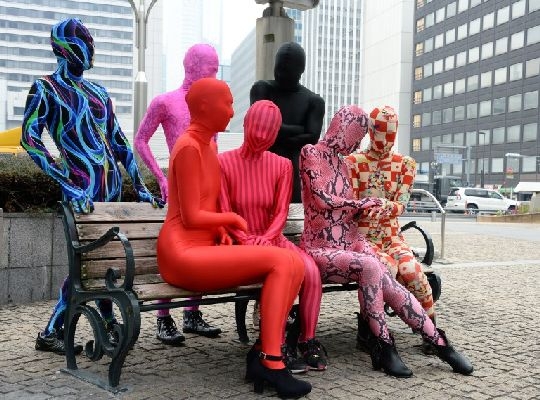 An organization called the Zentai Project, based in England, explains it as a tight, colorful suit that transforms a normal person into amusement for all who see them.
An organization called the Zentai Project, based in England, explains it as a tight, colorful suit that transforms a normal person into amusement for all who see them. -
11.
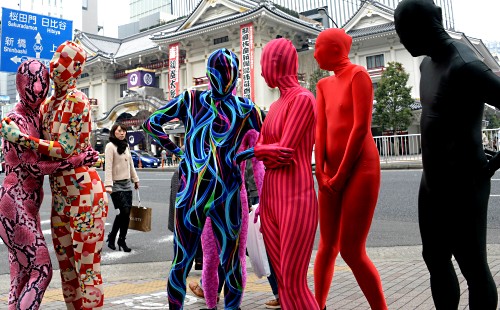 In a way, they are trying to expose their deeper self by hiding their own identity, said Daibo. I find it a very interesting way of communication.
In a way, they are trying to expose their deeper self by hiding their own identity, said Daibo. I find it a very interesting way of communication. -
12.
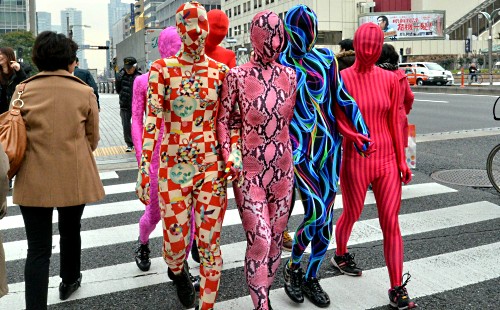 While the hobby is a long way from being mainstream in Japan, a country with an unsurpassed ability to dream up slightly off-the-wall pastimes, it makes occasional appearances in popular culture.
While the hobby is a long way from being mainstream in Japan, a country with an unsurpassed ability to dream up slightly off-the-wall pastimes, it makes occasional appearances in popular culture. -
13.
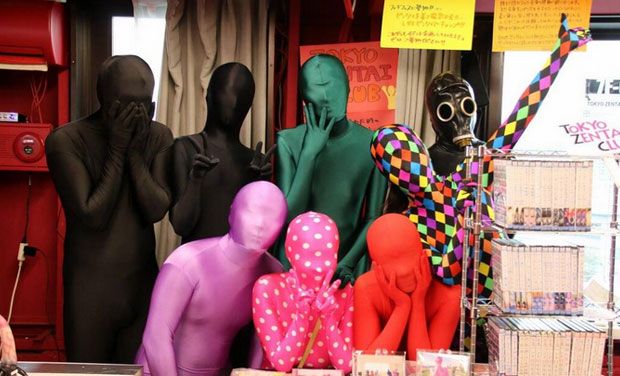 They take solace from the erasing of their outward appearances and say they believe it offers a way for people to get to know others as they are, rather than because of how they look.
They take solace from the erasing of their outward appearances and say they believe it offers a way for people to get to know others as they are, rather than because of how they look.
Its called zentai. And in Japan, it can mean a lot of things.
13/13
1/13


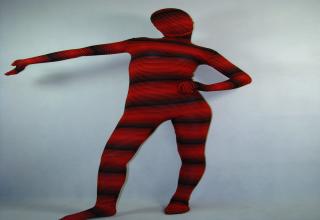





6 Comments